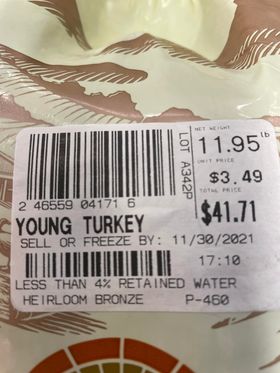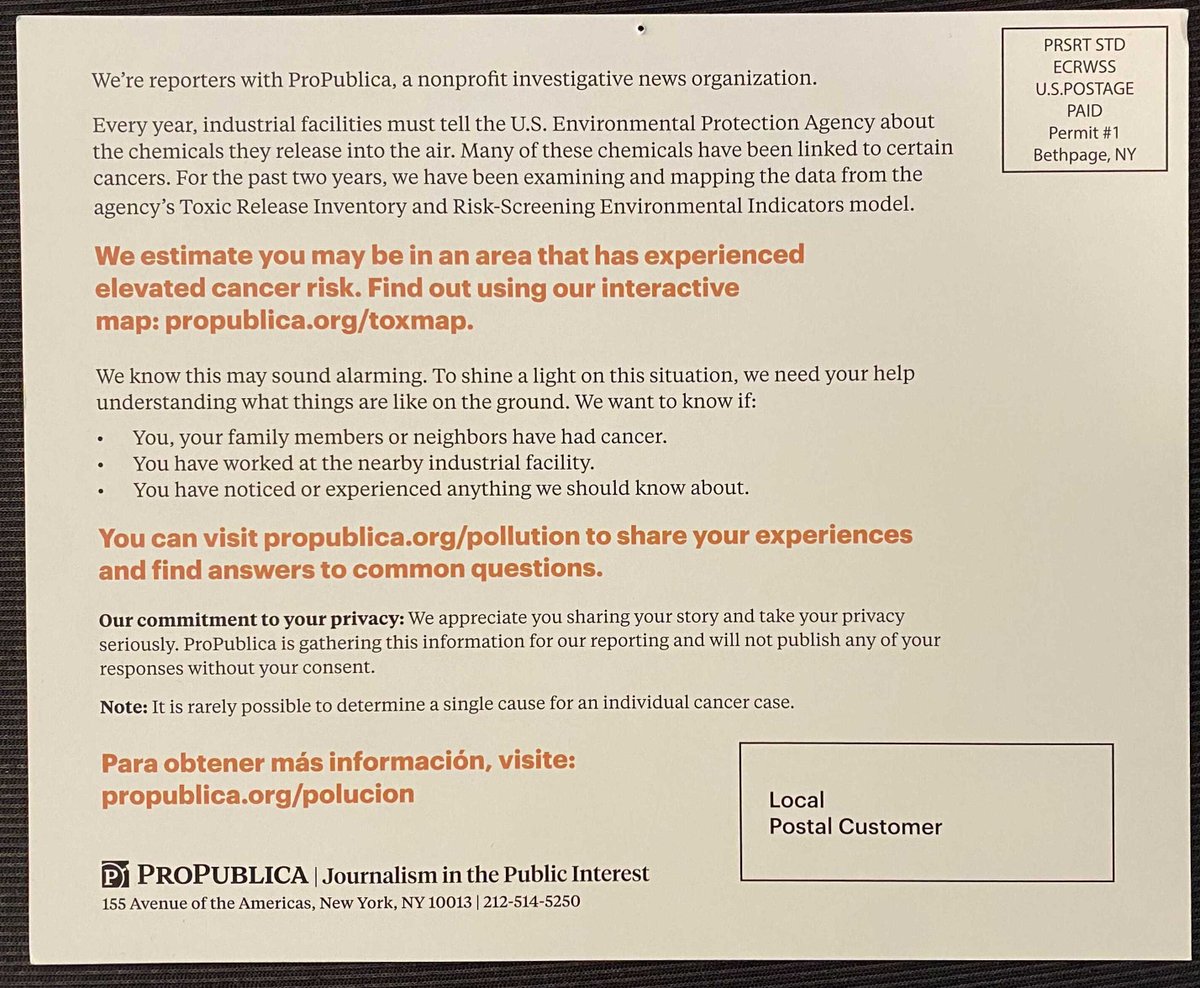
When do you win by losing?
When you're a billionaire and losses from your businesses & hobbies can help you avoid federal income tax for years in a row — sometimes more than a decade!
Presenting: A trilogy of loss (and huge gains), from @ProPublica's Secret IRS Files
When you're a billionaire and losses from your businesses & hobbies can help you avoid federal income tax for years in a row — sometimes more than a decade!
Presenting: A trilogy of loss (and huge gains), from @ProPublica's Secret IRS Files

•Part 1• of this miniseries focuses on real estate & oil mavens who used their respective industries' unusual advantages in the American tax code to claim sizable business losses on profitable enterprises.
propublica.org/article/these-…
propublica.org/article/these-…
Look at Miami Dolphins owner Stephen Ross, who has claimed $32M in tax losses since 2007 on a Manhattan apartment tower he owns, even though that building's value has doubled in the last two decades. 

This is just one of the properties Ross owns and can claim losses on. From 2008-2017, he reported $1.5B in income to the IRS, but he also claimed $2B in losses during that time, allowing him to avoid paying any federal income tax over those 10 years. 

A rep for Ross declined to accept questions, but said in a statement that “Stephen Ross has always followed the tax law."
Read all of Part 1, which includes new information on Donald Trump's tax returns, here:
propublica.org/article/these-…
propublica.org/article/these-…
•Part 2• of this tax avoidance trilogy shines a spotlight on billionaires who've turned the losses on their hobbies and pet projects into huge tax savings for themselves.
propublica.org/article/when-y…
propublica.org/article/when-y…
6 of the 20 horses slated to run the 2021 Kentucky Derby had ultrawealthy owners whose horse-racing operations have produced a combined $600M in losses they could use to offset their federal taxable income.
Among them was a tobacco billionaire who'd claimed $189M in losses over 16 years for his racing operations and a Campbell Soup heiress who'd claimed $173M in losses over 21 years of racing.
Sneaker billionaire Paul Fireman had only taken $9.3M in losses over a few years from his horse operation. But when combined with paper losses from side businesses, like $22M in losses from his million-acre Nevada ranch, Fireman paid no federal income tax in 8 out of 10 years. 

Fireman declined to comment for this story. The soup heiress and tobacco billionaire did not reply to requests for comment.
Check out all of Part 2 here:
propublica.org/article/when-y…
propublica.org/article/when-y…
•Part 3• focuses on an oil billionaire who was able to turn the nation's longest-running, and possibly largest, oil spill to her advantage, helping her avoid 14 YEARS of federal income tax.
propublica.org/article/a-mass…
propublica.org/article/a-mass…
2004 was a huge year for Phyllis Taylor. She inherited her late husband's huge oil exploration business only months after Hurricane Ivan caused one of the company's drilling platforms to collapse, resulting in a massive spill.
That spill went largely unnoticed by the general public and had yet to be cleaned up by 2008 when Phyllis Taylor sold all of the company’s oil rigs & other assets EXCEPT for the damaged rig for about $1.25B. 

Even though the former CEO of Taylor Energy told us the company "did not take a loss" on that sale, Phyllis reported taking a $211M tax loss on the sale.
What remained of Taylor Energy reached an agreement with regulators to create a $666M trust to pay for the cost of cleaning up the spill. But as the sole owner of the company, Phyllis has been able to deduct these costs from her personal taxes.
In the years after establishing the cleanup trust, Taylor Energy spent money trying to stop the spill, but claimed it couldn't have foreseen such an accident and that stopping the leak was technologically impossible.
The result: Even though Phyllis Taylor reported income of $444M between 2005-2018, she never paid a penny of federal income tax during those years. 

All the while, the Taylor Energy spill continued to leak into the Gulf of Mexico. A separate company eventually domed the spill, containing but not stopping it.
Reps for Taylor did not respond to repeated requests for comment.
Get the full story on Phyllis Taylor and the Taylor Energy spill in Part 3:
propublica.org/article/a-mass…
propublica.org/article/a-mass…
This trio of stories are part of ProPublica's ongoing Secret IRS Files project, providing a first-of-its-kind inside look at the tax records of the .001%:
propublica.org/series/the-sec…
propublica.org/series/the-sec…
Sign up at the link below to be notified when the next Secret IRS Files story publishes.
OR
Text “IRS” to 917-746-1447 to get the next story texted to you.
propublica.org/newsletters/th…
OR
Text “IRS” to 917-746-1447 to get the next story texted to you.
propublica.org/newsletters/th…
•Part 3• focuses on an oil billionaire who was able to turn the nation's longest-running, and possibly largest, oil spill to her advantage, helping her avoid 14 YEARS of federal income tax.
propublica.org/article/a-mass…
propublica.org/article/a-mass…
2004 was a huge year for Phyllis Taylor. She inherited her late husband's huge oil exploration business only months after Hurricane Ivan caused one of the company's drilling platforms to collapse, resulting in a massive spill.
That spill went largely unnoticed by the general public and had yet to be cleaned up by 2008 when Phyllis Taylor sold all of the company’s oil rigs & other assets EXCEPT for the damaged rig for about $1.25B. 

Even though the former CEO of Taylor Energy told us the company "did not take a loss" on that sale, Phyllis reported taking a $211M tax loss on the sale.
What remained of Taylor Energy reached an agreement with regulators to create a $666M trust to pay for the cost of cleaning up the spill. But as the sole owner of the company, Phyllis has been able to deduct these costs from her personal taxes.
In the years after establishing the cleanup trust, Taylor Energy spent money trying to stop the spill, but claimed it couldn't have foreseen such an accident and that stopping the leak was technologically impossible.
The result: Even though Phyllis Taylor reported income of $444M between 2005-2018, she never paid a penny of federal income tax during those years. 

All the while, the Taylor Energy spill continued to leak into the Gulf of Mexico. A separate company eventually domed the spill, containing but not stopping it.
Reps for Taylor did not respond to repeated requests for comment.
Get the full story on Phyllis Taylor and the Taylor Energy spill in Part 3:
propublica.org/article/a-mass…
propublica.org/article/a-mass…
• • •
Missing some Tweet in this thread? You can try to
force a refresh





















